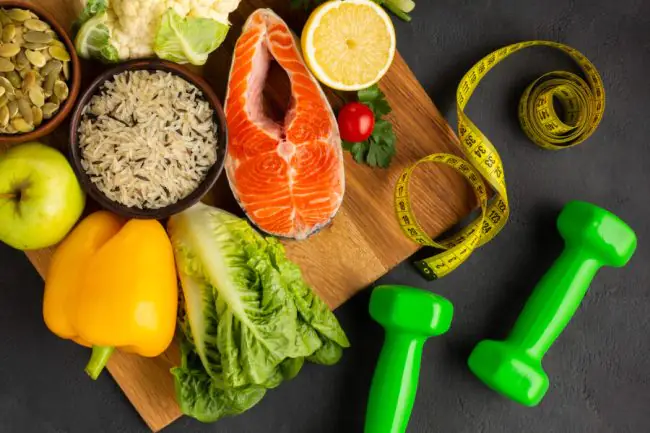Muscle soreness after exercise is a common experience, whether you’re a seasoned athlete or just starting your fitness journey.
While discomfort is part of the process, it doesn’t mean you need to suffer in silence.
Fortunately, natural remedies can provide effective relief without resorting to pharmaceuticals. Those are some of the best natural pain relievers for muscle soreness after exercise, helping you recover faster and get back to doing what you love.
What Causes Muscle Soreness After Exercise?
Muscle soreness, particularly after a new or intense workout, is your body’s response to microscopic damage in muscle fibers. This damage leads to inflammation, which causes the familiar stiffness and pain known as muscle soreness.
Types of Muscle Soreness: DOMS vs. Acute Muscle Soreness
There are two types of muscle soreness:
- Acute Muscle Soreness: Felt immediately during or after exercise due to the buildup of lactic acid.
- Delayed Onset Muscle Soreness (DOMS): Occurs 24 to 48 hours after intense physical activity, particularly after activities that your body is not used to.
How Inflammation Impacts Muscle Soreness
Inflammation is your body’s natural defense mechanism when healing damaged muscle tissue.
While inflammation is essential, excessive amounts can delay recovery and increase pain. Managing inflammation can speed up recovery and reduce discomfort.
Anti-Inflammatory Foods and Supplements
Adding anti-inflammatory foods and supplements to your diet can help your body heal faster and reduce muscle pain. Some of the most effective natural options include:
- Turmeric: Known for its active ingredient curcumin, turmeric is a powerful anti-inflammatory spice that can reduce muscle soreness.
- Omega-3 Fatty Acids: Found in fatty fish like salmon, chia seeds, and flaxseeds, these fats help lower inflammation in the muscles.
- Ginger: With properties similar to ibuprofen, ginger is a natural way to ease pain and reduce inflammation post-workout.
Herbal Remedies for Muscle Pain
Herbal remedies have been used for centuries to relieve pain and inflammation. Some of the most effective herbs for muscle soreness include:
- Arnica: Arnica is a popular homeopathic remedy known for reducing pain and swelling in sore muscles. You can find it in gels or creams that can be applied directly to the skin.
- Cayenne Pepper: The capsaicin in cayenne pepper works as a natural pain reliever by blocking pain signals to the brain. Cayenne-based creams can be applied to sore areas for relief.
- Spanish Herbs: Traditional herbs like Romero (rosemary) and lavanda (lavender) are known in Spain for their muscle-relaxing and anti-inflammatory properties.
The Benefits of Arnica for Muscle Recovery
Arnica, particularly in gel form, is renowned for its ability to reduce bruising and soreness. It stimulates circulation, promoting faster healing of muscles after exercise. Many athletes use arnica as part of their post-workout recovery routine.
Essential Oils for Muscle Soreness Relief
Essential oils are a natural and effective way to relieve muscle soreness:
- Peppermint Oil: Known for its cooling properties, peppermint oil helps soothe sore muscles and reduce inflammation.
- Lavender Oil: Lavender not only relaxes the muscles but also helps ease stress, which can contribute to muscle tension.
- Eucalyptus Oil: With its anti-inflammatory properties, eucalyptus oil is great for reducing swelling and soothing muscle pain.
Active Recovery Techniques
Stretching Exercises for Muscle Soreness
Gentle stretching after exercise can help ease muscle stiffness and promote recovery. Focus on holding stretches for at least 30 seconds to allow the muscles to fully relax.
Yoga Poses for Muscle Recovery
Yoga is an excellent way to stretch and lengthen sore muscles, improving circulation and reducing tension. Some beneficial yoga poses include:
- Child’s Pose (Balasana): Relieves tension in the lower back and legs.
- Downward-Facing Dog (Adho Mukha Svanasana): Stretches the hamstrings, calves, and shoulders.
- Cobra Pose (Bhujangasana): Helps to open the chest and stretch sore back muscles.
Benefits of Massage Therapy for Sore Muscles
Massage therapy helps to improve blood circulation, which can promote muscle recovery and reduce inflammation.
Even self-massage with tools like foam rollers or massage balls can ease tension and reduce post-workout soreness.
Nutrition and Hydration for Muscle Recovery
Best Foods to Eat After a Workout
Proper nutrition is essential for muscle recovery. Focus on foods that are rich in protein, carbohydrates, and antioxidants to replenish energy stores and repair damaged muscle tissue:
- Protein-rich foods like lean meats, eggs, and legumes help repair muscle fibers.
- Carbohydrates such as whole grains and fruits restore glycogen levels.
- Antioxidant-rich foods like berries and spinach reduce inflammation.
Hydration Tips for Muscle Soreness Relief
Staying hydrated is important for muscle recovery. Water helps to flush out toxins and reduce inflammation. Additionally, drinks like coconut water or water with a pinch of salt can help replenish electrolytes lost during intense exercise.
Preventive Measures for Muscle Soreness
Warming up before exercise increases blood flow to your muscles, making them more flexible and less prone to injury. Cooling down after a workout helps remove lactic acid and reduce post-workout stiffness.
Importance of Rest Days in Muscle Recovery
Giving your body time to rest and recover is just as important as exercise itself. Add rest days to your workout routine to prevent overuse injuries and allow your muscles to heal properly.
Additional Resources for Muscle Recovery
Recommended Products for Muscle Soreness Relief
- Arnica Gel
- Peppermint Essential Oil
- Foam Roller
Expert Interviews on Natural Pain Relief Methods
Including expert opinions or insights from fitness professionals can add credibility to your content. Consider consulting local trainers or natural health experts in Spain for tips and advice.
Conclusion
Muscle soreness after exercise is a normal part of building strength and endurance, but it doesn’t have to slow you down. With these natural pain relievers, you can ease discomfort and support your body’s recovery without relying on artificial medications.
Whether it’s through herbal remedies, essential oils, or nutrition, you have plenty of options to reduce muscle soreness naturally.
FAQs
What pain reliever is good for sore muscles after a workout?
Arnica, peppermint oil, and turmeric are some of the best natural options for relieving muscle soreness after exercise.
How to cure muscle soreness after a workout?
Active recovery techniques, proper nutrition, hydration, and natural remedies like herbal supplements and essential oils can help cure muscle soreness.
What to drink for sore muscles after a workout?
Coconut water, herbal teas (like ginger or turmeric), and water with electrolytes are great for replenishing fluids and reducing muscle pain.
How can I speed up my muscle soreness and recovery?
To speed up muscle soreness recovery, engage in light exercise, stay hydrated, eat protein-rich and anti-inflammatory foods, and use cold and heat therapy. Adding rest, foam rolling, and massage also helps release tension and supports healing.







